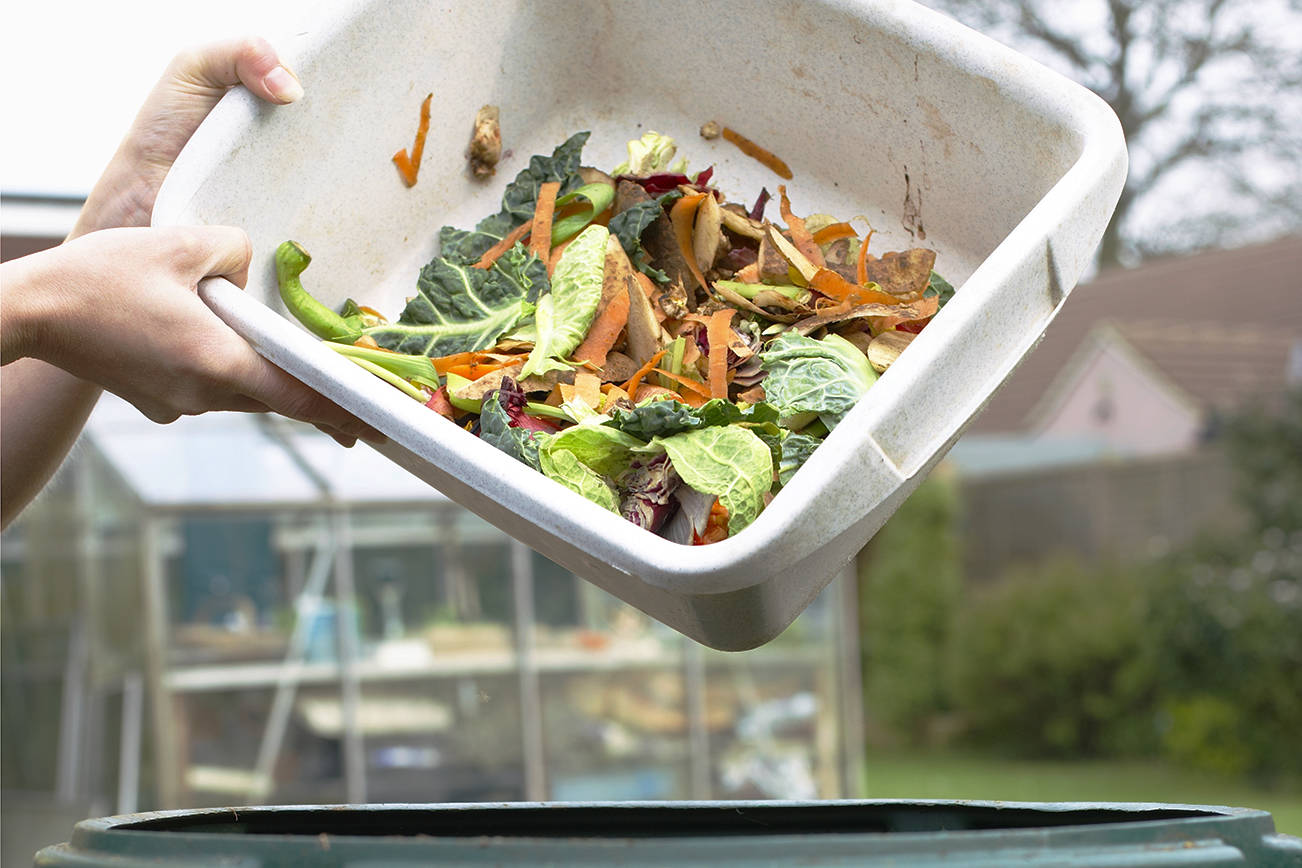More than 40 million tons of food waste ends up in landfills and combustion centers annually, according to the United States Environmental Protection Agency. In an effort to reduce San Juan County’s organic waste footprint, Solid Waste Coordinator Mark Ingram began facilitating conversations around the islands on the topic.
“Common interest and a shared vision,” are what Ingram said he hopes to find from the island community, during a meeting he led on March 10. “When people are organized and when people share a common goal, results happen.”
Meeting attendees came from a variety of backgrounds and experiences.
“What could we do to prevent it from getting to the dump where I think the definition of organic materials would be organic waste,” asked San Juan Islander and member of the Transition San Juan Island Waste Team, Tina Fisher.
Ingram noted the transfer station on San Juan Island, run by Lautenbach Recycling, doesn’t have a large organic material collection system
“The first thing we did was put a wood recycling dumpster in,” Troy Lautenbach said. “It’s mainly brush, 2-by-4s things like that that go into there.”
Lautenbach explained the transfer station then reduces lawn debris into mulch, biomass or compost for arborists. The station does not take other forms of organic waste, however, Ingram noted.
“There’s a really limited amount of space that we can operate there,” Lautenbach said.
Friends of the San Juans Community Engagement Director, and member of Transition San Juan Island, Katie Fleming expressed surprise that such a program was even available at the islands’ transfer station.
“I don’t even know about that,” Fleming said. “I obviously should.”
Fisher suggested the transfer station host a weekly or monthly date for an organic waste collection like it does hazardous materials.
“If there is a desire to go down that road then it becomes a brainstorming activity,” Lautenbach said. “All that stuff is definitely on the table and we’re open to having those kinds of discussions.”
Ingram explained he would like to see an improved capacity for green and woody waste as well as other organic materials, he’d rather not see headed straight for a landfill.
Fleming noted her end goal would be for the islands to recycle and reuse rather than hauling waste off-island — organic materials especially.
Town of Friday Harbor Council member Steve Hushebeck said he sees an opportunity for the restaurants of the island — especially those in town — to work with local farms to reduce organic waste by composting it for use on one of the many island farms.
“That’s one of the opportunities or challenges that we’ve got,” Hushebeck said. “I think we have an opportunity for a composting operation here without sending it off-island.”
Hushebeck mentioned some concerns, however, as how that plan would work — whether restaurants would have to bucket it to take it somewhere and other logistical challenges.
“How do we make sense of it? How do we make it work?” Hushebeck asked. “The town really doesn’t have the resources to establish an entity that does that. Because we’re pretty small. … I think there’s an opportunity here, it’s just going to be hard to manage.”
Education is the most important route to a solution, Hushebeck said. Explaining to the community why organic recycling is important is key to changing behaviors, he explained.
“I try to do my own composting in the backyard. I have to admit I’m pretty much a failure at it,” Hushebeck said. “I think we have an opportunity from an education standpoint.”
Lautenbach echoed Hushebeck’s statement, adding that a solution will need to be “multi-pronged.”
More conversations about organic materials disposal will be held in the future, keep an eye on sanjuanco.com for more information.
“There isn’t a silver bullet for some of these complex challenges,” Ingram added.



